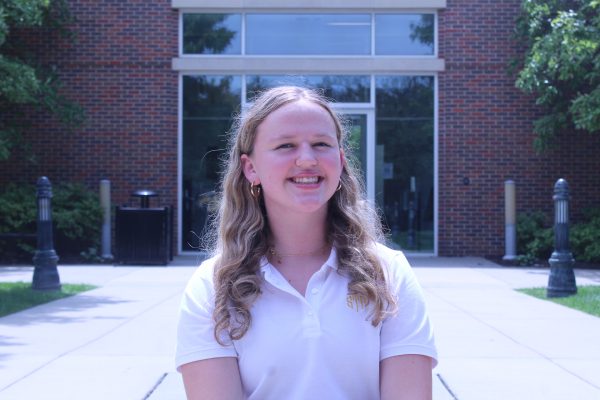Imagine a perfect day at The K: a blue sky, a savory hotdog or two, and a Royals win. Could this be possible with a new stadium downtown? This question has sparked debate among Kansas City citizens.
On April 2nd, Jackson county voters denied the dreams of a stadium tax. The 3/8 of a penny tax would fund the Kansas City Royals and Chiefs for the next 40 years. Before the vote, Kansas Citians paid a similar tax for the maintenance of the Truman Sports complex, the teams’ current location.
This vote was crucial to the Royals owners, as they were planning on building a new downtown stadium in the Crossroads District. However, this plan proved to be extremely controversial for many reasons.
For one, many voters saw the proposed facility as a “billionaire’s stadium.” This is not only due to the pricing of the new stadium, standing at $2 billion, but also that the people profiting off the stadium will mostly be wealthy sports franchise owners, not the public. Though many of the owners have the income to sponsor the move, the public still would pay a large amount of money for the new stadium.
Another reason behind the controversy: the location, more specifically the businesses located in the Crossroads. While a downtown stadium can cause a boom in sales for many local businesses, the move would require around 20 businesses to relocate.
Many of these businesses are also in historic buildings, which was another concern with the stadium. The construction of the stadium would cause the demolition of several buildings and streets. Infrastructure during the building process would be extremely chaotic.
Many business owners wonder why the Royals did not consider the East Village area for their relocation, as there are eight vacant lots that could be used for stadium space.
Still with all these issues at hand, there are several positives to a downtown stadium in KC’s future.
Firstly, downtown energy has become a necessity to many cities, especially in sports. Generally, downtown stadiums earn more revenue for teams, cities and local businesses.
Major League Baseball especially prioritizes downtown stadiums. There is talk of a White Sox move to downtown Chicago, Oakland will relocate to Las Vegas for a downtown stadium, and some of the most iconic fields are downtown, such as the Cubs’ Wrigley Field and the Oriole’s Park at Camden Fields.
A downtown field would lead to more accessibility for all Kansas Citians, since driving would not be necessary. The street car could be a vital part of transportation, but alternatively, fans could enjoy walking downtown before a game.
The Chiefs would also benefit from the tax, so Arrowhead would receive an update. The $800 million renovation would sponsor an upper-level concourse and parking deck, new video boards, an expanded tailgating space, and much more.
So, with many pros and cons, the stadium tax was polarizing to the city.
Narrowly, the referendum was voted no, 58% to 42%. While there are several reasons “no” was the majority decision, some blame poor planning on the teams’ part. Though the Chiefs and Royals spent around $3 million in advertisement, many citizens were not clear on what the stadium plans were or what the tax was.
With or without the tax, the Chiefs and Royals continue to negotiate. The Truman Sports Complex’s lease ends in 2031, leaving everyone questioning if the teams will leave Jackson County.
As ominous as this sounds, it doesn’t mean that it will happen. The teams are looking at numerous places such near Children’s Mercy Park, North Kansas City, or possibly trying again in Jackson County.
The Royals could relocate to Nashville, though. According to ESPN, Nashville is one of the top potential cities for a team expansion or re-location.
With many forthcoming proposals reliant on public opinion, this will continue to be a developing story.



